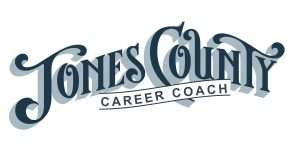
In partnership with Accelrate MS, the Economic Development Authority’s (EDA) Career Coach program is revolutionizing how high school students in Mississippi plan their futures. Focusing on providing one-on-one guidance and support, this program aims to bridge the gap between education and employment, ensuring students are well-prepared for their post-graduation paths.
The Growth of the Career Coach Program
Launched in 2022, the Career Coach program has expanded significantly thanks to increased investment and support. In the 2023-2024 academic year, the number of career coaches in Mississippi public high schools increased from just 20 to 185, covering 78% of public high schools and 79% of school districts statewide.
How Career Coaches Make a Difference
Career coaches are crucial in connecting students with industry leaders and local employers. They provide personalized guidance to help students explore various career options, understand the skills required, and navigate the complexities of the job market. By engaging with students through one-on-one conversations, group interactions, and field trips, career coaches help students set realistic goals and create actionable plans.
For instance, in Jones County, career coaches have significantly impacted the local community by building excitement and engagement among students and businesses. They help students complete college and job applications, connect them with internships and job-shadowing opportunities, and even involve parents in the career planning process.
Success Stories and Future Goals
The Career Coach program has already produced impressive results. In the past year alone, coaches have facilitated over 25,000 one-on-one student conversations, 4,108 parent meetings, 2,905 college applications, and 1,741 job applications. These efforts have helped students clarify their career goals and increased the number of federal student aid applications completed in the state.
The program aims to extend its reach further, potentially introducing career concepts to junior high and elementary students. This proactive approach ensures that students are aware of their options and prepared for their future from an early age.
Conclusion
The EDA’s Career Coach program exemplifies how targeted support and guidance can transform students’ futures and contribute to economic growth. By providing the resources and connections students need, career coaches are helping to build a skilled workforce ready to meet the demands of Mississippi’s growing industries.





